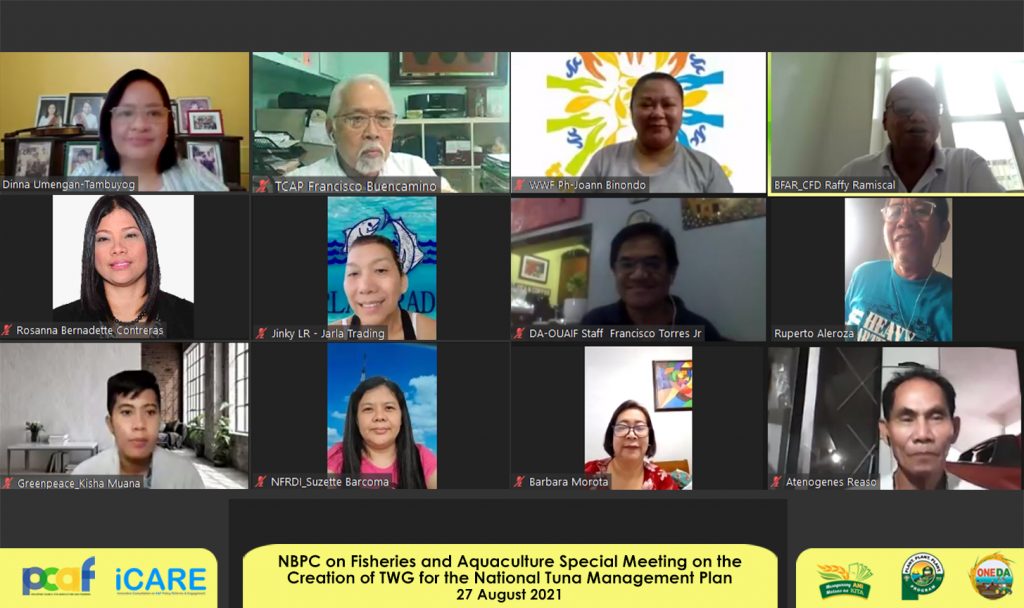
“Nasaan ang Tuna?”
This was the problem raised by Francisco Buencamino, Executive Director of the Tuna Canners Association of the Philippines (TCAP), as he identified a specific issue that the supposed Technical Working Group (TWG) for the National Tuna Management Plan (NTMP) could help address.
Buencamino said that 2020 was a bad year for the tuna industry in terms of catch, and that 2021 showed slow recovery.
Looking at the worldwide production of tuna, a declining trend can be observed due to overfishing.
Based on the Philippine Statistics Authority data, total fisheries production for all species for the first quarter of 2020 dropped to 2.6 % or 986.41 thousand metric tons from a positive growth during the same period in 2019. This further decreased to 0.8% or 978.62 thousand metric tons in the first quarter of 2021. Yellowfin tuna (tambakol/bariles) in particular had a notable 17.6% decrease.
Buencamino also considered the possibility that changes in habitat temperature and lack of food resources could drive tunas to migrate or affect their spawning behaviors.
This issue, along with improvement of fish programs towards compliance with market standards, were the proposed items for the TWG’s terms of reference discussed during the special meeting of the National Banner Program Committee on Fisheries and Aquaculture (NBPC on F&A) on August 27, 2021.
The TWG will serve as an adhoc body that would review the NTMP and address other pressing issues of the tuna industry while waiting for the reconstitution of the National Tuna Industry Council (NTIC).
Aside from the terms of reference, the composition of the TWG was also discussed.
The body agreed to narrow down the list of proposed members by removing organizations that are not directly involved in the NTMP to make the coordination and overall management of the TWG easier.
Further, the Department of Agriculture Special Order No. 1117 s. 2018 or the Reconstitution of National Tuna Industry Council (NTIC) will also be used as a guide to identify suitable members, particularly on representatives from the academe, research institutions and tuna cannery companies.
The Bureau of Fisheries and Aquatic Resources (BFAR) also suggested that the TWG should review and consolidate studies from both the private and public sector to utilize the information for the NTMP.
The SOCSKSARGEN Federation of Fishing and Allied Industries, Inc. (SFFAII) shared the list of proposed tuna research agenda to inform the Committee of lacking studies and avoid redundancy.
The Committee was also advised of upcoming Western and Central Pacific Fisheries Commission (WCPFC) meetings and workshops, wherein the replacement of management measures for tuna would be discussed. The Philippines is currently preparing for these activities as the outcome may affect the domestic supply of tuna.











